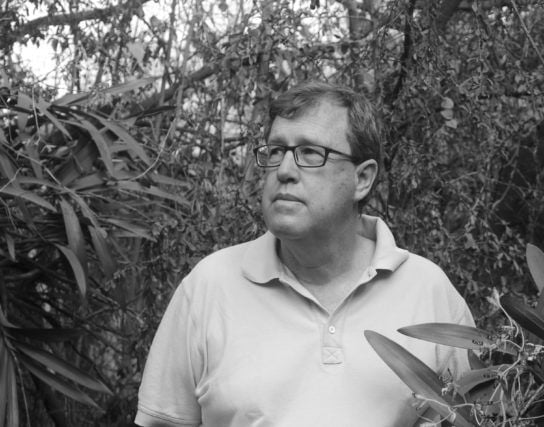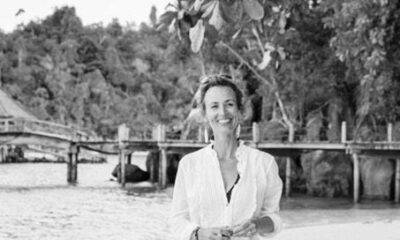

Awards
World Responsible Tourism Awards – Winners Interview Series
Exclusive Interview: Simon King, East Africa Safari and Touring Company (EASTCO)
Founded in 2004, the World Responsible Tourism Awards allow people the chance to celebrate the heroes and share the stories of the most exciting and enduring responsible tourism experiences in the world.
EASTCO just won the silver award for “Best contribution to wildlife conservation”
The Best contribution to wildlife conservation category is awarded to a tourism business or initiative that had measurable success in preserving and managing habitat and wildlife species. The focus of Best contribution to wildlife conservation is on holiday providers, whether tour operators, accommodations or conservation organisations, which have, through tourism, achieved measurable wildlife and/or habitat conservation objectives. Initiatives might include wildlife watching experiences, nature trails, places to stay or other holidays which otherwise benefit wildlife and habitats. What the Judges wanted was integration of great holiday experiences with progressive and sustainable programmes in wildlife and habitat conservation, measures of success and ideas which can be adapted and developed by tourism providers around the world.
The East African Safari and Touring Company (EASTCO) is a private Tanzanian Company owned by a Tanzanian/Australian family living in Arusha Tanzania. It was established in 1992 by Simon King.
EASTCO is a small operation offering private safaris throughout East Africa and they run their own fleet of 4wd safari vehicles. They usually offer safaris combining the traditional parks with visits to areas of natural beauty, cultural or wildlife significance outside the national parks. They try and emphasise that safari is a journey, a journey to experience all of what Africa has to offer. Respectfully and responsibly.
In the early 1990’s, EASTCO’s Directors were concerned at the destruction of habitat and the consequential reduction in wildlife populations in the wilderness areas outside the National Parks that make Tanzania so special. They realized the only way to ensure Africa’s wildlife will endure for future generations was to conserve habitat and lands, and only then will species be able to survive and in some cases recover from years of devastating poaching. They also realized the only way to ensure that Tanzania’s Natural Heritage was not lost forever would be to involve the local communities in saving habitat and wildlife, as well as benefiting from the wildlife on their lands. The gazetting of Community Management for the Randilen Wildlife Management Area (WMA) over twenty years later was EASTCO’s achievement.
We interviewed Simon King, the founder of EASTCO, to find out more.
EASTCO recently won a World Responsible Tourism Award. In 140 characters (a tweet) or less – why do you think you won such an important award?
Community conservation works: after 20 years we were able to show that community conservation does save wildlife and can stop hunting, poaching and land degradation.
What was the driver for creating EASTCO specifically – what gap does it fill?
EASTCO fills the gap between the numerous cookie cutter safari operators and the adventure over-land safaris. EASTCO works with the local communities and offers safaris to remote and off-the- beaten-path destinations, walking on the Masai steppes east of Tarangire, fly camps and cultural interaction, kayaking in the Indian Ocean, rock art sites and specialist safaris.
Who is EASTCO primarily for?
EASTCO is for the safari-goer who feels the need to experience Africa and its people, not just the fly in, fly out safari. This can be any age group that has the need to explore, to meet people and experience landscapes and wildlife. We know that what we are trying to achieve can make a difference to wildlife and the local communities and can enhance their own safari experience and enjoyment.
What difference does EASTCO want to make?
We want to save habitat, and in doing so, save wildlife. The biggest threat to wildlife numbers is loss of habitat. Tanzania has 17% of her land covered by Protected Area where no human settlement or activity is allowed and 18% of her land covered by Protected Area where there is wildlife and humans share the land. Up until 2010 the range for elephants in Tanzania was 39% of her surface area.
We see the only way to preserve wildlife and habitat is by empowering local communities and using tourism to meet these aims. Only the local communities can save their land. They must be given that incentive through tourism revenues.
What are the barriers to making that difference?
Too many tour operators and travel specialists now sell the safari package; there is very little thought to the future, and tour operators’ support is vital if Community Conservation is to be effective and for the Community Conservation Areas to provide meaningful experiences for visitors.
Without a change in thinking by tour operators on how to market Tanzania and its wildlife, by staying longer periods outside the parks in community areas, the only winners will be the hunting companies who dominate these areas now.
Who’s helping you overcome those barriers?
To achieve what we have achieved you also needed to make sure you have people at a District level who are committed to climate change issues and providing better opportunities for their communities. Without them the battle is lost. We have been fortunate in that we have had a Divisional Officer, Mr. Paulo Kiteleki, working in Monduli for over 15 years. Without that longevity and commitment, then these types of projects are overrun by self interest, greed and hunting companies.
Is the tourism sector doing enough to deliver a sustainable travel and tourism?
Tourism operators and lodges owners here are more interested in getting the “Fair Trade” logo or using their “community projects” as marketing tools. Very few are interested in making the long-term difference and working outside the parks in important wildlife areas in community lands.
It is not enough to pass judgement on whether a project will survive or not based on present day economics. The long term value of these lands and the wildlife they preserve is not a dollar and cents judgement.
How can people find out more about EASTCO?
EASTCO has a website, www.eastafricansafari.net, facebook https://www.facebook.com/EastAfricanSafariAndTouringCompany/, instagram https://www.instagram.com/eastafricansafari/ and twitter account https://twitter.com/eastcosafaris.


 Environment12 months ago
Environment12 months agoAre Polymer Banknotes: an Eco-Friendly Trend or a Groundswell?

 Features11 months ago
Features11 months agoEco-Friendly Cryptocurrencies: Sustainable Investment Choices

 Features12 months ago
Features12 months agoEco-Friendly Crypto Traders Must Find the Right Exchange

 Energy11 months ago
Energy11 months agoThe Growing Role of Solar Panels in Ireland’s Energy Future




























